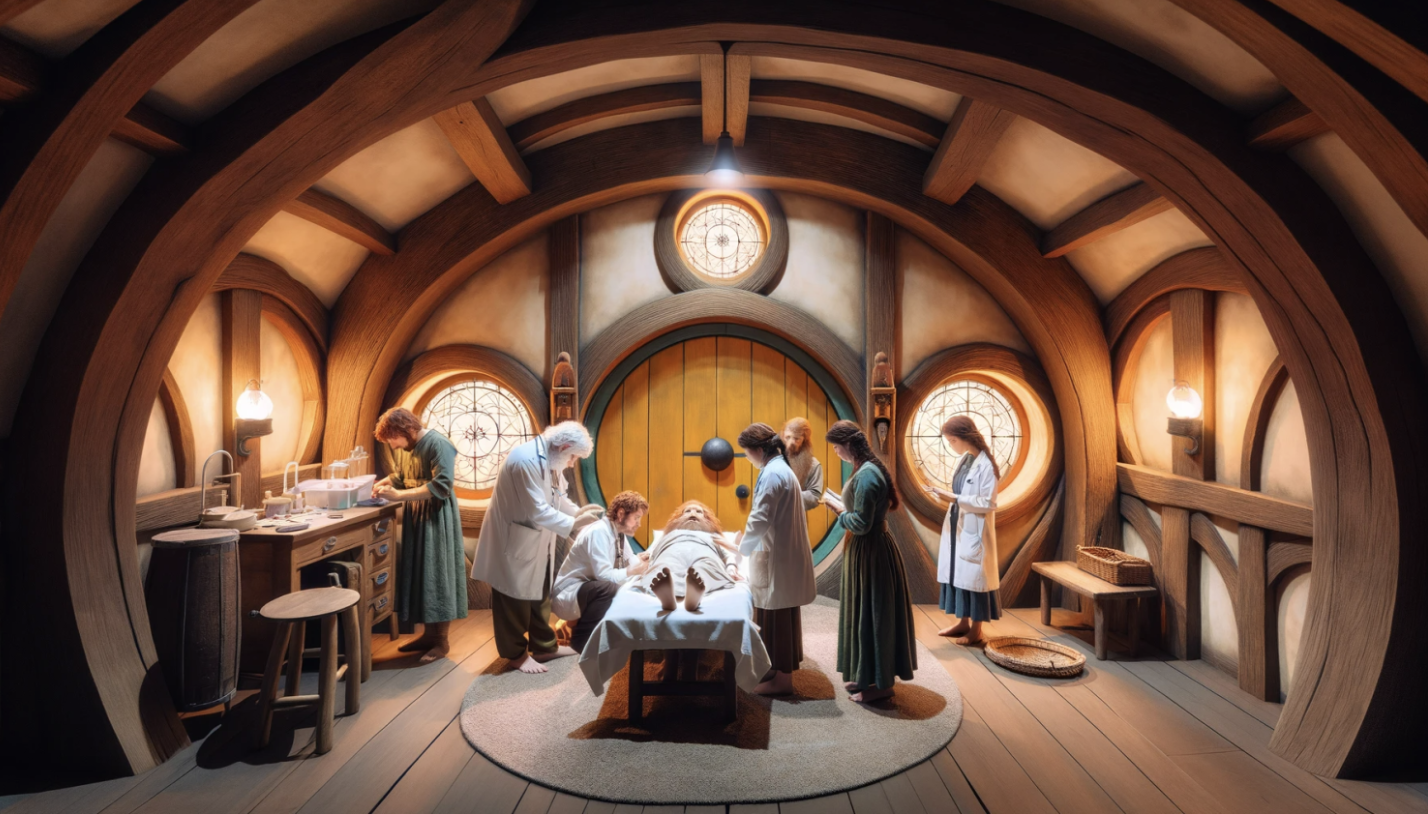Comments
- No comments found

Artificial Intelligence encompasses a lot of different areas.
This can include categorization, image recognition, summarization, reasoning, generative AI, decision systems, agents, etc. It's very easy, looking at LinkedIn or the various tech outlets, to think that AI has all but subsumed every aspect of computing, that traditional skills are now obsolete, and that we should all be thinking about retraining as plumbers, because the jobs we once knew are gone forever.
The reality is, not surprisingly, a little different, and it's worth taking a breather this holiday season to get some perspective on what exactly is going on with AI and how it's likely to impact the broader picture.
The drama with OpenAI over the last week rocked the IT space, and no doubt gave a lot of heartburn to investors who were sure that this current darling of the tech field was poised to crash and burn. Despite a brief quasi-stint as a Microsoft Red Shirt, Sam Altman is now back at the helm of OpenAI, the board has been mostly replaced (Larry Summers (?!)), and the coup d'etat has been foiled. As we all recover from turkey dinners, the news media is doing its hardest to hush the whole thing up, as if it never happened.
However, this should serve as a wake up call to everyone in this sector that maybe, just maybe, AI has just done a Fonzerelli over the Great White Sharks below. Pundits have been talking about the Q* algorithm, a variation of a gaming AI technique that, when applied to ChatGPT, seems to take us one step closer to AGI. Additional scary commentary seems to be coming from others in the OpenAI camp that seem to indicate that they welcome our new AI overlords, and that little things like all jobs becoming obsolete are trifling compared to the awesomeness of the Singularity, when we become one with the Borg.
If this sounds like the plot of some B Movie Thriller (and not a terribly original one at that), it's because it is. AI Is inevitable, so goes the narrative, and all your jobs are ours. Resistance is futile. Some of this is deliberate marketing, because the big 5 AI companies for the most part have bet the bank on being the knowledge super providers to the world, which only happens if you consume their feeds. If the juggernaut is unstoppable, why resist?
Some of this admittedly comes from the echo chamber effect. Many years ago (back in the Gates era) I worked for Microsoft. It was all too easy to succumb to the feeling that what you were working on at the moment was the most important thing in the world, to the exclusion of pretty much everything else. This is one reason that many tech companies want to bring workers back to the office - the echo chamber effect weakens with WFH (and it has weakened with Internet access in general), but even today it becomes very easy to see the world in quasi-religious terms when you are in the bubble.
However, what this is really in service to is attracting investment money, money that would otherwise be going to different software initiatives. Key among these is the community language models, smaller, usually open source, typically built on Llamas or similar micromodels that may not be achieving sentience soon, but that work better for managing local data. A little further out are knowledge graphs, which have the potential to scale better, do not have hallucinatory problems, and have significant maturity in their development and understanding.
Even further out are more traditional projects. Provisioning a data driven site is very different from just throwing up some auto generated HTML - there are workflows and information models to be considered, there is a need for a consistent ontology protocol, and there are concerns about validation and coherency that need to be maintained. The "easy app" world is great for demos, but without some kind of coherent design, all kinds of dirty data has the potential to sneak into your applications because of code generators, especially probabilistic ones.
To a significant extent, these projects are being starved out due to AI hype, much of it focused at the extreme upper end. This is worrisome, because, as this week's events showed, that upper end represents a definite single point of failure, one made all the more concerning because the technology in question is still clearly beta level at best. Yes, it's an impressive beta, but it is something that I as an architect would beverydubious about incorporating anywhere except in the most non-mission-critical areas possible. Experiment, build proofs of concept, even use generative AI for summarization, yes (more on that in my next Generation AI newsletter post), but now is not the time to be building an entire business model on quicksand.

The Bilbo Baggins Center for Hobbit Care
I am writing this from a hospital bed, in what has become an all too frequent occurrence. I come from good Central Illinois farming genes - stocky, on the short side, stout, someone built for working the earth. I like to describe myself as a Hobbit, down to the furry feet and the second breakfasts.
Unfortunately, there are downsides to being a Hobbit, which in my case is a combination of congestive heart failure, CPOD, and multiple heart attacks. My body retains fluid, and despite low sodium diets, a CPAP machine, and a modicum of exercise (we have a moderately large house with lots of stairs), I still suffer from fairly severe edema, to the extent that there are times my feet (and other parts of my body) swell enough I can no longer wear shoes.
Ordinarily, this is controllable. During times of stress, however, it is possible to reach a tipping point, and a few months ago, I reached it. Tipping points are insidious things, the event horizon upon which you pass, not even realizing that all of the vectors around you have switched from a known, stable environment, to an unknown, chaotic one. That only comes later, when it is too late to do anything small to adjust.
The tipping point for me was ballooning by 25 pounds in less than three months, to the extent that walking across a room was difficult, stairs became mountains, and my ability to concentrate went out the window. This was not due to overeating - if anything, I'd lost much of my appetite. This was a phase transition, and the likely end state of that phase transition would have had me dead with a fatal heart attack or stroke just as I'd hit my 60s.
Two days before American Thanksgiving, my daughter drove me to the emergency room, and pushed me in a wheelchair because I could no longer lift my own legs enough to walk any distance. After a few hours, I was admitted to the regular hospital, and they fed me Lasix intravenously. Lasix is a diuretic - it makes one pee, and in large enough doses, it is very good at pulling excess water out of one's lungs, stomach, feet, legs, groins, hands, and so forth. It also plays an absolute hob on one's kidneys, so there is always a balancing act involved.
Since I've been here, I've lost 35 pounds in four days, with the goal of losing another five to ten before I leave. I'm exhausted, but for the first time in months I can breathe again. I did not think about breathing at all until suddenly it's the only thing I could think about. I'd been operating on about 10% less oxygen than everyone else. This isn't fatal, but nor is it good if you're trying to write or code.
I missed Thanksgiving dinner this year, however, I do have a few things that I'm thankful for. I'm thankful for my family and my cats. I'm thankful that I've had the privilege to be able to observe this most fascinating era and the opportunity to write about those observations. Perhaps most importantly, I'm thankful that I'm still here, as I could very well see me not be, like the shadow of Tiny Tim, soon before Christmas itself.
I'm not young anymore. Here's a secret that old people have. Most old people, hell, most people, see themselves in their prime, still think that there is all the time in the world. It is not that they seek immortality, but rather, that they seek not becoming old. Like breath, time is ephemeral and always, always unappreciated until it is no longer there. You become old when you go to draw breath and it fights back. You become old when you realize that time and death are simply two facets of the same thing.
Wisdom, ultimately, is in accepting that death is part of life. Wisdom is what causes you to be thankful that, at the end of the day, you are still here, that at each new dawn, you are still here. Wisdom forces you to prioritize your life, makes sure that your actions are meaningful to you, and not simply something that makes a wealthy man wealthier at your expense. Take care of your health ... it's the only health you have.
In Media Res,
Kurt Cagle
Kurt is the founder and CEO of Semantical, LLC, a consulting company focusing on enterprise data hubs, metadata management, semantics, and NoSQL systems. He has developed large scale information and data governance strategies for Fortune 500 companies in the health care/insurance sector, media and entertainment, publishing, financial services and logistics arenas, as well as for government agencies in the defense and insurance sector (including the Affordable Care Act). Kurt holds a Bachelor of Science in Physics from the University of Illinois at Urbana–Champaign.
Leave your comments
Post comment as a guest